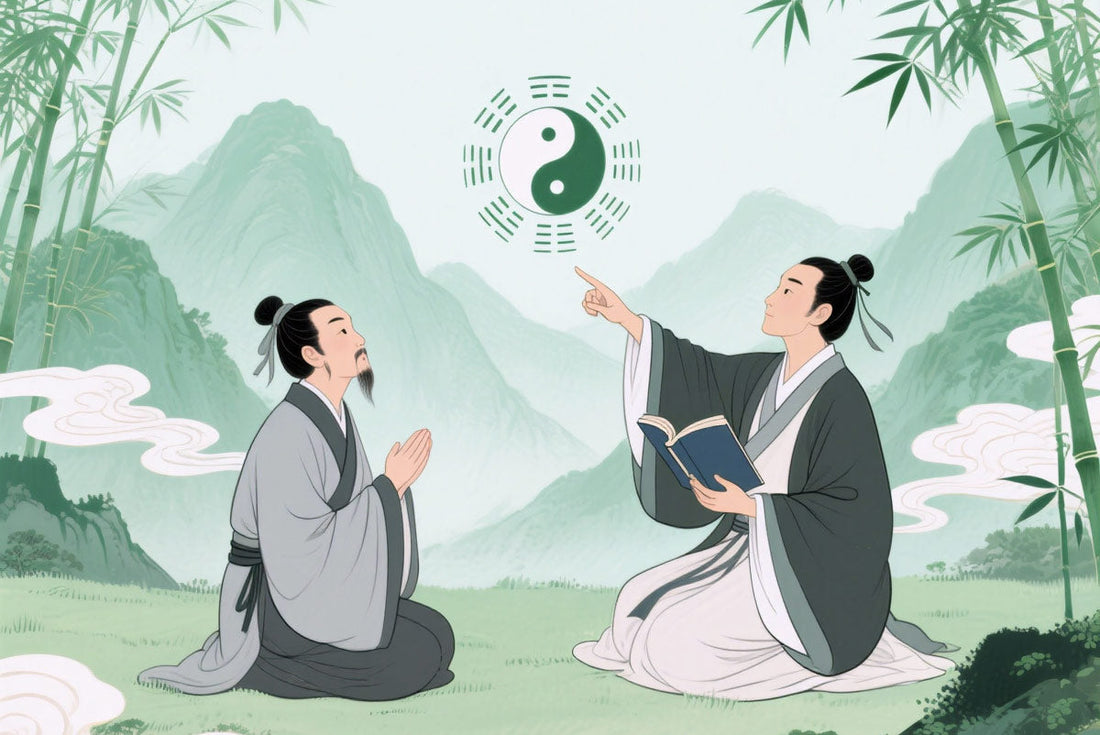
Celebrating Xiaoman: Discover the Timeless Wisdom of the 24 Solar Terms for a Mindful, Balanced Life
The Rhythm of Earth
As golden wheat fields begin to swell but don't yet ripen across China, we celebrate Xiaoman (小满) - the 8th solar term meaning "Grain Buds." This subtle moment in nature's calendar reveals the genius of China's 24 Solar Terms system, an agricultural-philosophical masterpiece refined over 2,200 years. More than a farming guide, it's a compass for harmonious living that modern society urgently needs.
What Are the 24 Solar Terms?

Developed during the Han Dynasty (206 BCE–220 CE), the system divides the solar year into 24 segments (15-18 days each) based on the sun’s position. Each term poetically describes natural changes:
- Chunfen (春分): Spring Equinox ("equal day and night")
- Xiazhi (夏至): Summer Solstice ("extreme of heat")
- Shuangjiang (霜降): Frost's Descent
- Dahan (大寒): Major Cold
These terms guided farmers, fishermen, and emperors alike, blending astronomy, meteorology, and Taoist/Buddhist philosophies about balance.

Xiaoman: A Time of Growth and Contentment
Today’s Solar Term, Xiaoman (小满), translates to “Grain Buds” or “Small Fullness.” It marks the stage when summer crops begin to ripen, but they are not yet fully mature. This period symbolizes potential and growth, reminding us that great things often start small.
In the Book of Rites (礼记), our ancestors observed: "When the young wheat nourishes itself without arrogance, Heaven’s harmony resides within its humility." Xiaoman embodies this Daoist principle of "having enough without overflow" (满而不溢). The character 满 (mǎn, fullness) is deliberately tempered by 小 (xiǎo, small), mirroring the Yijing's teaching that "Greatness lies in knowing when to cease" (知止不殆).
Historically, Xiaoman was a sacred dialogue between farmers and silkworms. Women would offer mulberry leaves to the Silk Goddess Lei Zu, singing "Little fullness brings silk treasures; great fullness breaks the cocoon’s thread" - a metaphor for life’s delicate balance between ambition and contentment.
Xiaoman also teaches us the value of moderation. The term “满” (mǎn) means “full,” but it’s preceded by “小” (xiǎo), meaning “small.” This suggests that while it’s good to strive for abundance, we should also avoid excess. It’s a call to appreciate what we have and to find contentment in the present moment—a lesson that aligns perfectly with the Zen-inspired lifestyle we promote at Bluedail.com.
Three Layers of Wisdom
1. Yin-Yang Balance
Solar terms embody the dance between opposites. During Dongzhi (冬至 Winter Solstice), the shortest day marks "yang's rebirth" - a reminder that darkness always yields to light.
2. Wu Wei (无为) - Effortless Action
Terms like Jingzhe (惊蛰 Insects Awaken) teach us to act with nature's timing, not against it. Farmers knew to plant after this term, trusting warmed soil to rouse seeds naturally.
3. The Art of Enough
Xiaoman ("small fullness") carries profound philosophy: "A full moon wanes; ripe grain falls." It celebrates almost ripe grains as perfection - a counterpoint to modern "maximization" culture. Chinese poets linked this to life wisdom: true abundance lies in leaving room to grow.

Modern Relevance: Slow Wisdom for Fast Times
- Lichun (立春 Start of Spring) reminds us to "plant ideas" during life's renewals
- Qingming (清明 Tomb-Sweeping Day) turns ancestor veneration into a meditation on time’s cycles
- Dashu (大暑 Major Heat) invites us to slow down, as traditional Chinese medicine advises conserving energy during peak yang periods
Cultural Gems Hidden in the Terms
- "Solar Term Diet": Eating duck during Chushu (处暑 End of Heat) to combat dryness
- "Solar Term Art": Song Dynasty paintings capturing Hanlu (寒露 Cold Dew)'s first chrysanthemums
- "Global Science": UNESCO recognized the system as Intangible Cultural Heritage in 2016 for its meteorological precision
The 24 Solar Terms: A Complete Guide
Here’s the full list of the 24 Solar Terms, along with their approximate dates and meanings (Dates are approximate, varying ±1 day annually):
Spring 春

1. 立春 Lìchūn (Feb 3-5) - "Start of Spring": Nature's reset button. Farmers performed "whip the spring ox" rituals using clay effigies to awaken the earth.
2. 雨水 Yǔshuǐ (Feb 18-20) - "Rain Water": Melted snow nourishes seeds. Symbolizes maternal care in Daoism - gentle nurturing over forceful intervention.
3. 惊蛰 Jīngzhé (Mar 5-7) - "Awakening of Insects": Thunder drums awaken hibernators. Traditional "insect expulsion" rituals using herbal sachets reflect preventive wisdom.
4. 春分 Chūnfēn (Mar 20-21) - "Spring Equinox": Day-night balance. The "Egg Standing Challenge" originated here, teaching patience through equilibrium.
5. 清明 Qīngmíng (Apr 4-6) - "Pure Brightness": Tomb-sweeping with willow branches. Merges Confucian filial piety with Daoist purity rituals.
6. 谷雨 Gǔyǔ (Apr 19-21) - "Grain Rain": Last spring rain. Tea farmers harvest pre-rain pekoe leaves, embodying the art of perfect timing.
Summer 夏

7. 立夏 Lìxià (May 5-7) - "Start of Summer": Children's weight-checking ritual. Reflects ancient focus on preventive healthcare through seasonal adjustments.
8. 小满 Xiǎomǎn (May 20-22) - "Small Fullness": Wheat grains reach 80% maturity. Teaches the Zen concept of "satisfaction before saturation".
9. 芒种 Mángzhòng (Jun 5-7) - "Grain in Ear": Hectic planting period. Ancient ballads warn: "Miss Mangzhong, lose your harvest song."
10. 夏至 Xiàzhì (Jun 20-22) - "Summer Solstice": Longest day. Eating "cooling noodles" demonstrates TCM's "counteract heat with cold" dietary philosophy.
11. 小暑 Xiǎoshǔ (Jul 6-8) - "Minor Heat": Mugwort hung on doors. Represents the concept of "small protections prevent great disasters".
12. 大暑 Dàshǔ (Jul 22-24) - "Major Heat": Drinking hot fuling tea. Practices "fighting fire with fire" - yang energy to dispel summer dampness.
Autumn 秋

13. 立秋 Lìqiū (Aug 7-9) - "Start of Autumn": Eating autumn peaches. Symbolizes letting go of summer's yang while preserving its essence.
14. 处暑 Chùshǔ (Aug 22-24) - "End of Heat": River lantern festivals. Bid farewell to summer through water-based rituals honoring the Metal element.
15. 白露 Báilù (Sep 7-9) - "White Dew": Collecting dawn dew for skincare. Embodies the alchemical belief in "harvesting heaven's essence".
16. 秋分 Qiūfēn (Sep 22-24) - "Autumn Equinox": Mooncake ancestor altars. Balances Confucian remembrance with yin-yang harmony rituals.
17. 寒露 Hánlù (Oct 8-9) - "Cold Dew": Chrysanthemum wine banquets. Poets like Tao Yuanming linked this term to dignified aging.
18. 霜降 Shuāngjiàng (Oct 23-24) - "Frost's Descent": Persimmon harvesting. Symbolizes finding sweetness through life's hardships in Chinese folklore.
Winter 冬

19. 立冬 Lìdōng (Nov 7-8) - "Start of Winter": Dumpling feasts shaped like ancient ingots. Combines practical energy storage with wealth symbolism.
20. 小雪 Xiǎoxuě (Nov 22-23) - "Minor Snow": Vegetable preservation. Applies the military stratagem "store provisions before the battle" to domestic life.
21. 大雪 Dàxuě (Dec 6-8) - "Major Snow": Lamb stew nourishment. Follows TCM's kidney-focused winter regimen using black foods like wood ear mushrooms.
22. 冬至 Dōngzhì (Dec 21-23) - "Winter Solstice": Tangyuan glutinous balls. Their round shape represents cosmic unity and family completeness.
23. 小寒 Xiǎohán (Jan 5-7) - "Minor Cold": Early Spring Festival preps. Demonstrates the "inch-by-inch" philosophy - small daily efforts conquer great challenges.
24. 大寒 Dàhán (Jan 20-21) - "Major Cold": Incense purification rituals. Closes the cycle with smoke carrying prayers for renewal, embodying the endless Daoist cycle of 物极必反 ("Extremes beget reversal").
The 24 Solar Terms aren't relics - they're invitations to live rhythmically. As Xiaoman whispers "Harvest is coming, but wait," we learn to embrace life’s almosts: projects nearly completed, goals almost reached. True fulfillment, says this ancient system, lies in the journey between "not yet" and "enough."

May we all find our Xiaoman moments this season. 🌾
